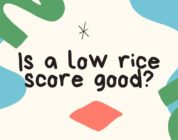Introduction
Ever scratched your head over what a Rice Purity Test is? It’s time to unlock the mystery! The term hails from Rice University, where students designed a self-graded purity test to gauge one’s level of innocence in certain areas of life. In this detailed exploration, we’ll shine a light on the different types of Rice Purity Tests and their respective strengths and weaknesses. Buckle up for an exciting journey into the world of Rice Purity Tests!
The Different Types of Rice Purity Tests and Their Respective Strengths and Weaknesses
First things first, let’s dig into our key topic: the different types of Rice Purity Tests and their respective strengths and weaknesses. These tests often cover themes like social interaction, illegal activities, and personal life choices. But what separates one test from another? And how does each one measure up? Let’s break it down.
1. Original Rice Purity Test
This is the mother of all purity tests. It originated from Rice University and is an extensive, 100-question survey designed to measure an individual’s innocence in matters not typically discussed in polite company. Its strengths lie in its thoroughness and specificity, while its weaknesses include potential bias due to cultural, regional, or personal differences.
2. The Shortened Rice Purity Test
For those who feel overwhelmed by the original version, the Shortened Rice Purity Test is a compact 50-question variant. Its major strength is its brevity, making it more accessible to those with less time on their hands. Its weakness, however, is that it may not capture the full spectrum of experiences as the original version does.
3. The Themed Rice Purity Tests
In recent years, thematic variations of the Rice Purity Test have gained popularity. These tests focus on specific areas such as academic life, romantic relationships, or law-abiding behaviors. The strength of these tests lies in their ability to provide more focused results, but their narrow focus may not be as comprehensive or representative of one’s overall ‘purity’.
Understanding the Scoring System of Rice Purity Tests
Alright, folks, we’ve taken a gander at the types of tests, but how do they score? Interestingly, the scoring systems can differ from test to test. Scores can range from 0 (least pure) to 100 (most pure), and are usually designed to promote discussion and self-reflection rather than establish moral superiority.
Applying Rice Purity Tests: Strengths and Pitfalls
So, what’s the real deal with applying Rice Purity Tests? Are they all they’re cracked up to be? The strengths of these tests include fostering self-awareness and promoting dialogue on otherwise taboo subjects. On the flip side, their inherent subjectivity and potential for misinterpretation can serve as notable weaknesses.
The Evolution of Rice Purity Tests
Just like the seasons, Rice Purity Tests have changed over time, adapting to societal shifts and fresh perspectives. They’ve evolved from their origins as an innocuous freshman orientation activity into an internet sensation that can spark lively discussions.
Rice Purity Tests: A Global Perspective
How do these tests fare outside their birthplace of Rice University? As it turns out, their popularity has spread globally! They’ve become a cultural phenomenon used by university students worldwide to break the ice, provoke thought, and promote conversation.
FAQs
Q: Are Rice Purity Tests scientifically valid? A: No, they’re not intended to be scientifically valid. They’re designed to promote self-reflection and spark discussions.
Q: Can Rice Purity Tests predict my future behavior? A: Absolutely not. These tests are snapshots of past experiences, not predictors of future actions.
Q: Are Rice Purity Tests confidential? A: Yes. You take the test independently, and your answers aren’t shared unless you choose to disclose them.
Q: Can taking a Rice Purity Test harm me? A: If taken in the right spirit, these tests are harmless. However, they can be problematic if they lead to comparison, competition, or judgment.
Q: Are there any restrictions on who can take a Rice Purity Test? A: No, anyone can take these tests. However, they’re generally geared towards university-age individuals.
Q: How often should I take a Rice Purity Test? A: There’s no set rule for this. Some people take them yearly, while others take them just once for fun.
Conclusion
The world of Rice Purity Tests is indeed a fascinating one, filled with different types and varying strengths and weaknesses. While they’re far from perfect, these tests have succeeded in bringing potentially taboo subjects to the table, promoting self-reflection, and, dare we say, providing a fun way to stir up conversation. Now, armed with this newfound knowledge, you’re all set to navigate the intriguing landscape of Rice Purity Tests. Happy exploring!




